In the Korean language and culture, the terms ‘Oppa,’ ‘Hyung,’ ‘Unnie,’ and ‘Noona’ are very important. They show respect and affection, and they tell us about relationships between people, especially about their age and gender. As interest in Korean culture grows worldwide, knowing what these words mean can help you understand and enjoy Korean social interactions and media better. Let’s dive into these terms and see why they matter so much.
Korean Honorifics: Significance and Respect
Importance in Social Interactions
In Korean culture, it’s really important to use honorific titles like oppa, hyung, unnie, and noona correctly when you’re talking to someone. These titles show respect and help keep relationships clear. They’re a big part of everyday talking and are crucial for getting along with others in both personal and professional settings.
Using these terms right helps you fit into the social structure. If you don’t use them correctly, or if you ignore them, people might think you’re being rude. This is why they are key to keeping harmony in Korean society.
Role in Conveying Respect
In Korean culture, honorific titles are crucial for showing respect and keeping social order. Titles like ‘oppa,’ ‘hyung,’ ‘unnie,’ and ‘noona’ do more than just name someone; they show respect and acknowledge the other person’s age or position. These terms make it clear who is older or in charge in social situations, helping everyone behave respectfully.
Using these titles correctly is key in Korean society. It shows you understand and respect Korean ways, which helps everyone get along better. It’s especially important to use these titles properly if you want to build good relationships in Korea. So, learning these honorifics is a must for navigating Korean culture effectively.
Exploring “Oppa”: Meaning and Usage
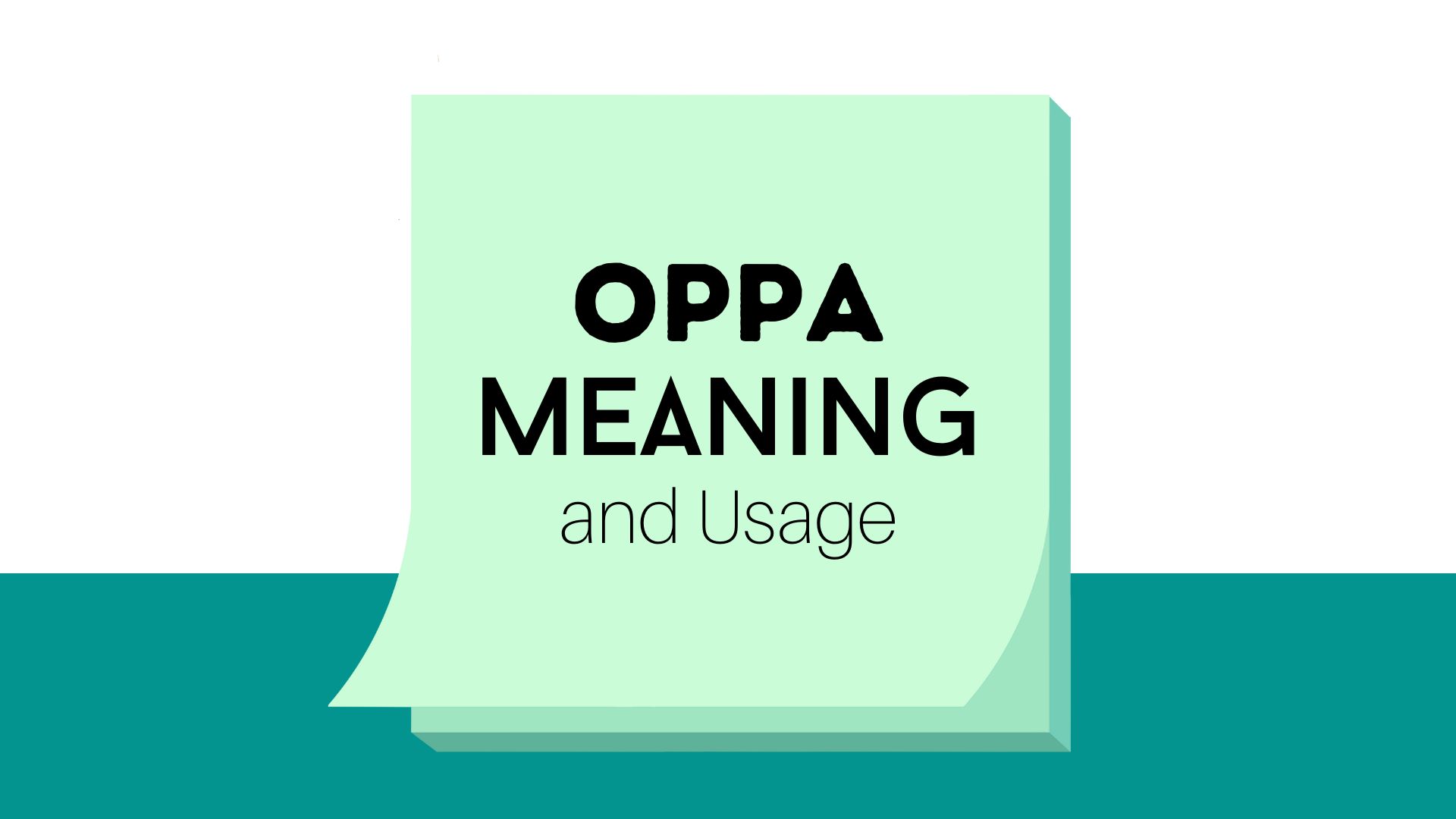
Definition and Context
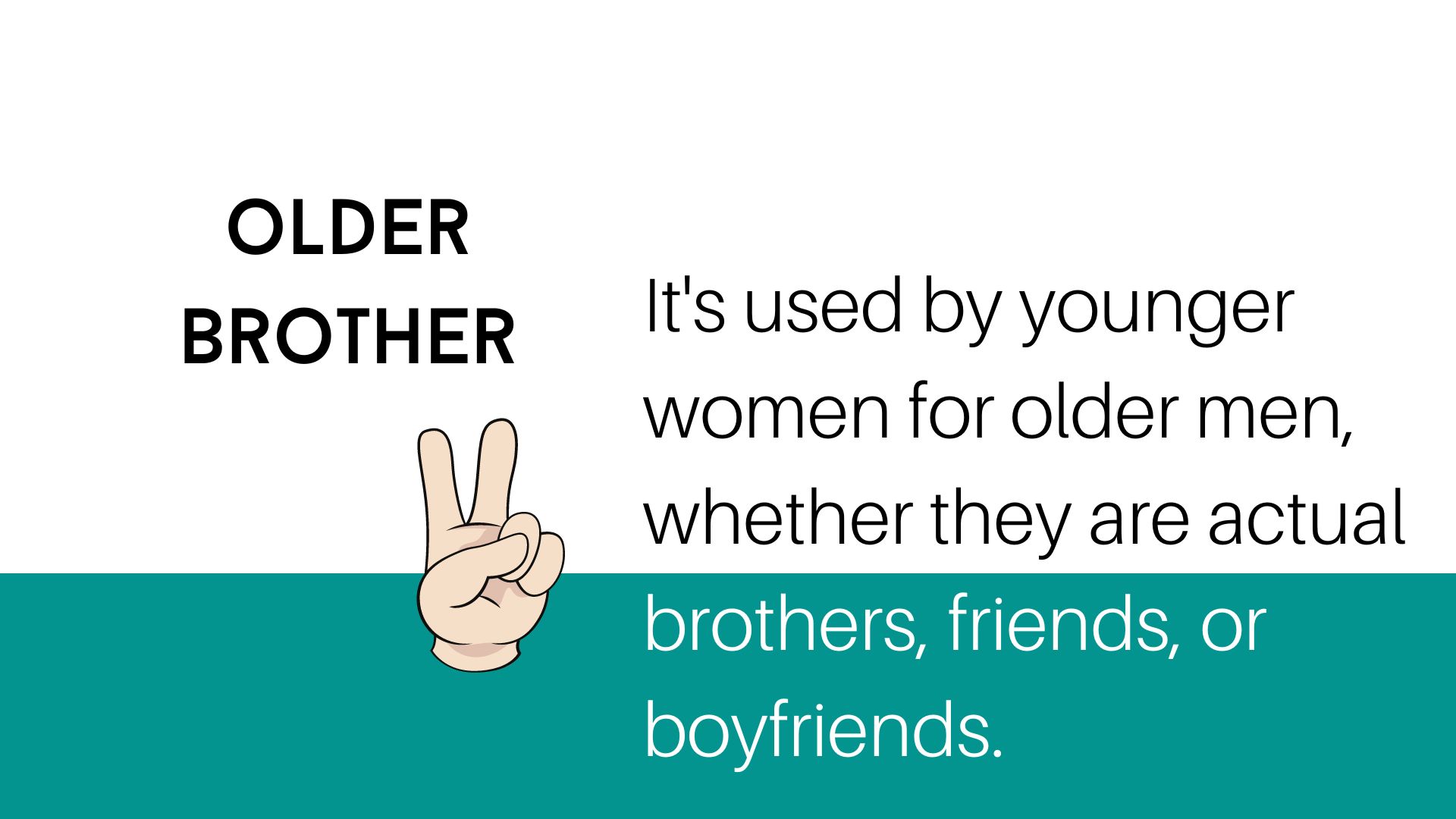
In South Korea, the term ‘oppa’ means more than just ‘older brother’. Younger women use it to refer to older men, whether they are actual brothers, friends, or boyfriends. This word shows closeness and trust, reflecting the way Korean society values family and social ties.
‘Oppa’ also shows respect for age and hierarchy, but in a warm, friendly way. It’s a word that mixes respect with affection, showing both admiration and emotional closeness. So, ‘oppa’ is not just a simple term; it’s a key part of how people interact, showing both familiarity and respect.
Usage Guidelines
The term ‘oppa’ carries emotional weight and is used by younger women to address older men who are close to them, like a brother or a boyfriend. However, it’s important to remember that ‘oppa’ is informal. It’s not suitable for professional settings. Make sure the relationship is close enough to use ‘oppa’ comfortably. Using it wrongly can lead to awkward situations. It’s crucial to know who you can call ‘oppa’ to avoid any cultural misunderstandings. Understanding these boundaries is key in Korean culture.
| No. | Korean Usage with Oppa | English Translation |
| 1 | 오빠가 항상 내 편이야. | Oppa, you’re always on my side. |
| 2 | 오빠 덕분에 많이 웃었어. | I laughed a lot because of Oppa. |
| 3 | 그 일, 오빠라면 할 수 있어! | You can do it, Oppa! |
| 4 | 오빠, 오늘 기분 어때? | Oppa, how are you feeling today? |
| 5 | 오빠랑 있으면 시간 가는 줄 몰라. | I lose track of time when I’m with Oppa. |
| 6 | 오빠의 조언이 정말 도움됐어. | Oppa’s advice was really helpful. |
| 7 | 오빠, 내일 같이 영화 볼래? | Oppa, want to watch a movie together tomorrow? |
| 8 | 오빠가 최고야! | Oppa is the best! |
| 9 | 오빠 때문에 오늘 행복해. | I’m happy today because of Oppa. |
| 10 | 오빠, 고마워요. 항상 고마워요. | Thank you, Oppa. Always, thank you. |
Exploring “Hyung”: Meaning and Usage
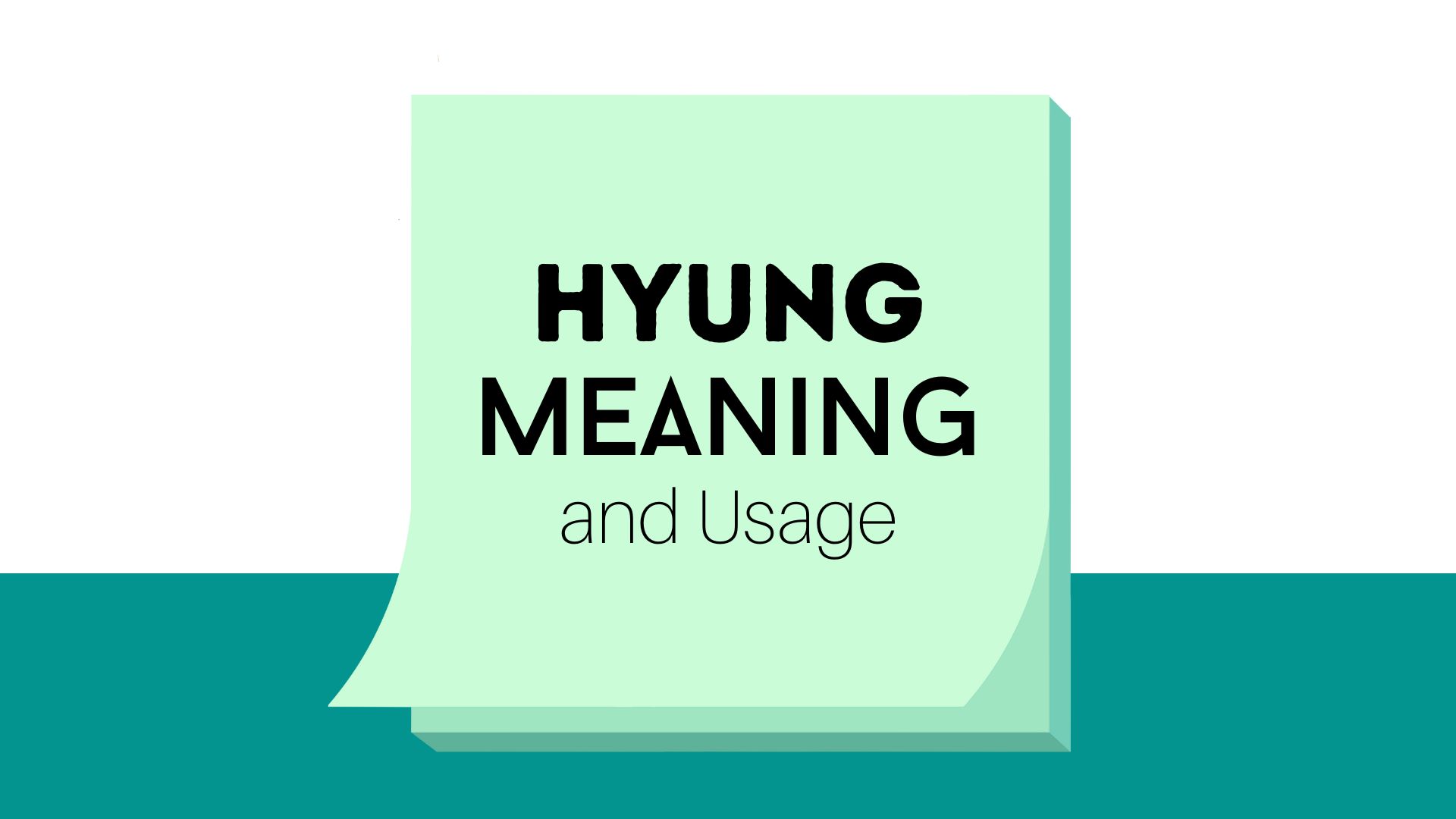
Definition and Context
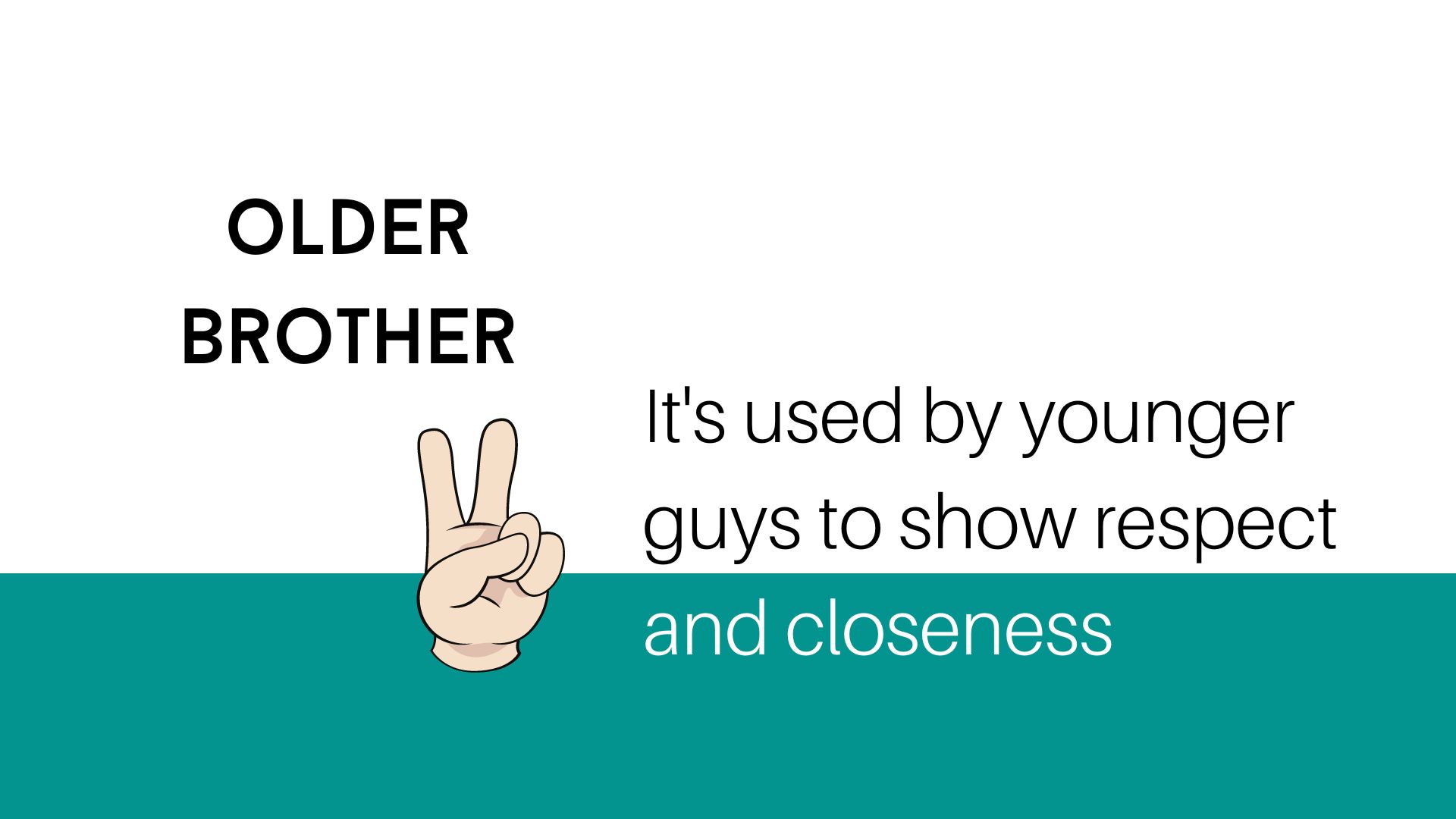
‘Hyung’ is a Korean term that means older brother or male friend. It’s used by younger guys to show respect and closeness. In Korean culture, this word isn’t just a casual title but a sign of the importance of age and relationships. When a younger male calls someone ‘hyung,’ it shows he sees him as a figure of respect, someone older or more experienced.
This term goes beyond just family. It’s used among friends too, especially when there’s an age gap. It’s about mixing respect with affection. Using ‘hyung’ helps keep things smooth and respectful, which is really valued in Korean relationships. It’s all about knowing your place and showing respect, which keeps everything running smoothly.
Usage Guidelines
If you’re learning Korean, it’s important to know how to use the term ‘Hyung’ correctly. It shows respect and closeness. Only males use it when they talk to older males who are usually close friends or brothers. In Korean culture, age and rank are very important in how people relate to each other. Using ‘Hyung’ shows you’re comfortable with someone, but you shouldn’t use it with people you don’t know well. It could come off as disrespectful or too friendly.
You should use it in situations where there is clear mutual respect and a real connection. When used correctly, ‘Hyung’ can help make friendships stronger because it shows you respect the social rules around age and relationships.
| No. | Korean Usage with Hyung | English Translation |
| 1 | 형이 항상 나를 지켜줘서 고마워. | Thanks for always looking out for me, Hyung. |
| 2 | 형, 이거 어때 보여? | Hyung, what do you think about this? |
| 3 | 형 덕분에 문제를 해결했어. | I solved the problem thanks to Hyung. |
| 4 | 형, 집에 잘 도착했어? | Hyung, did you get home okay? |
| 5 | 형과 함께라면 무엇이든 할 수 있어. | I can do anything when I’m with Hyung. |
| 6 | 형의 응원이 정말 힘이 됐어. | Hyung, your support really gave me strength. |
| 7 | 형, 주말에 축구 보러 갈래? | Hyung, want to go watch soccer this weekend? |
| 8 | 형은 항상 옳은 말만 해. | Hyung always says the right things. |
| 9 | 형이 준 선물이 너무 마음에 들어. | I really love the gift Hyung gave me. |
| 10 | 형, 내일 같이 운동할래? | Hyung, want to work out together tomorrow? |
Exploring “Unnie”: Meaning and Usage
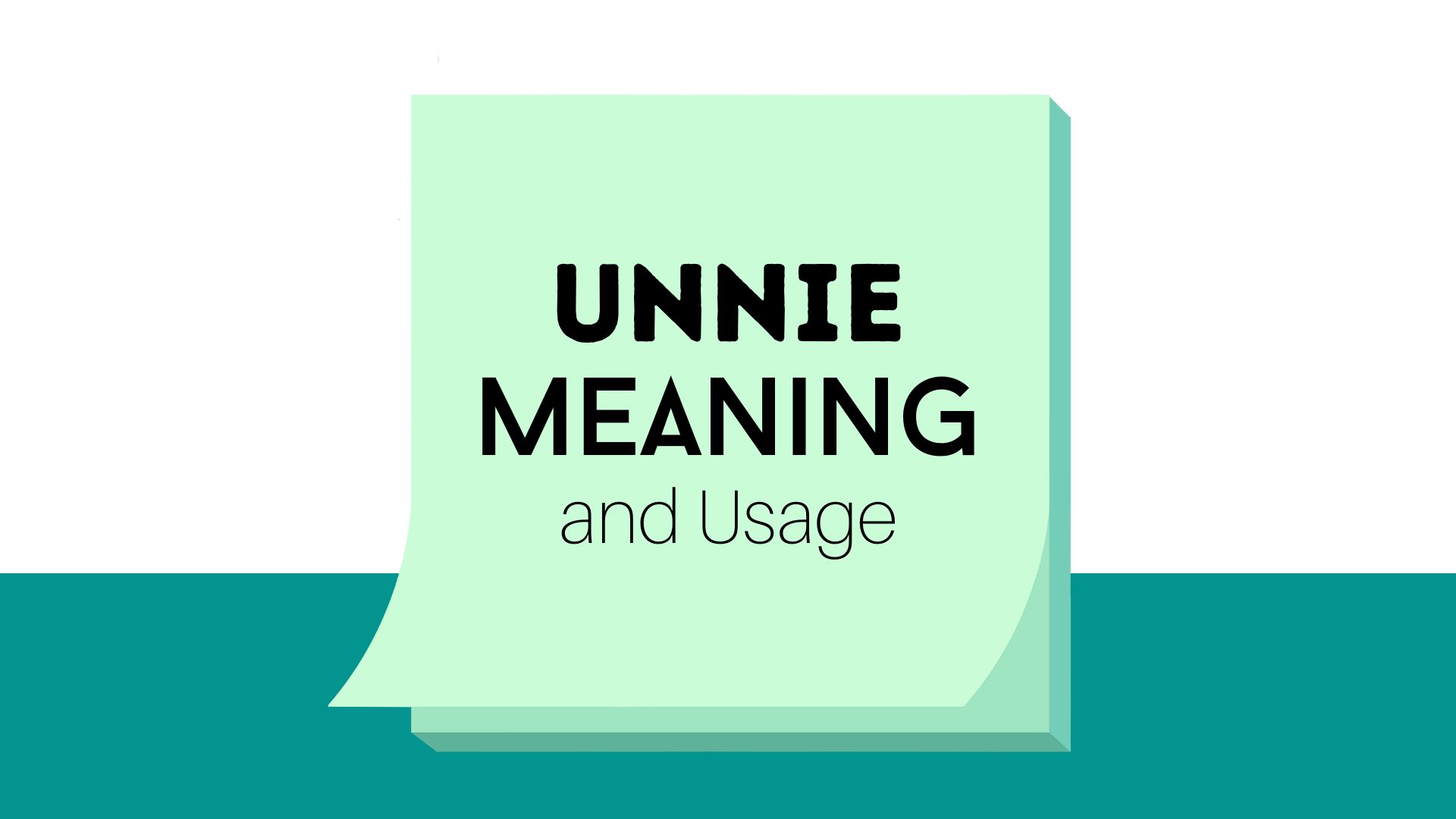
Definition and Context
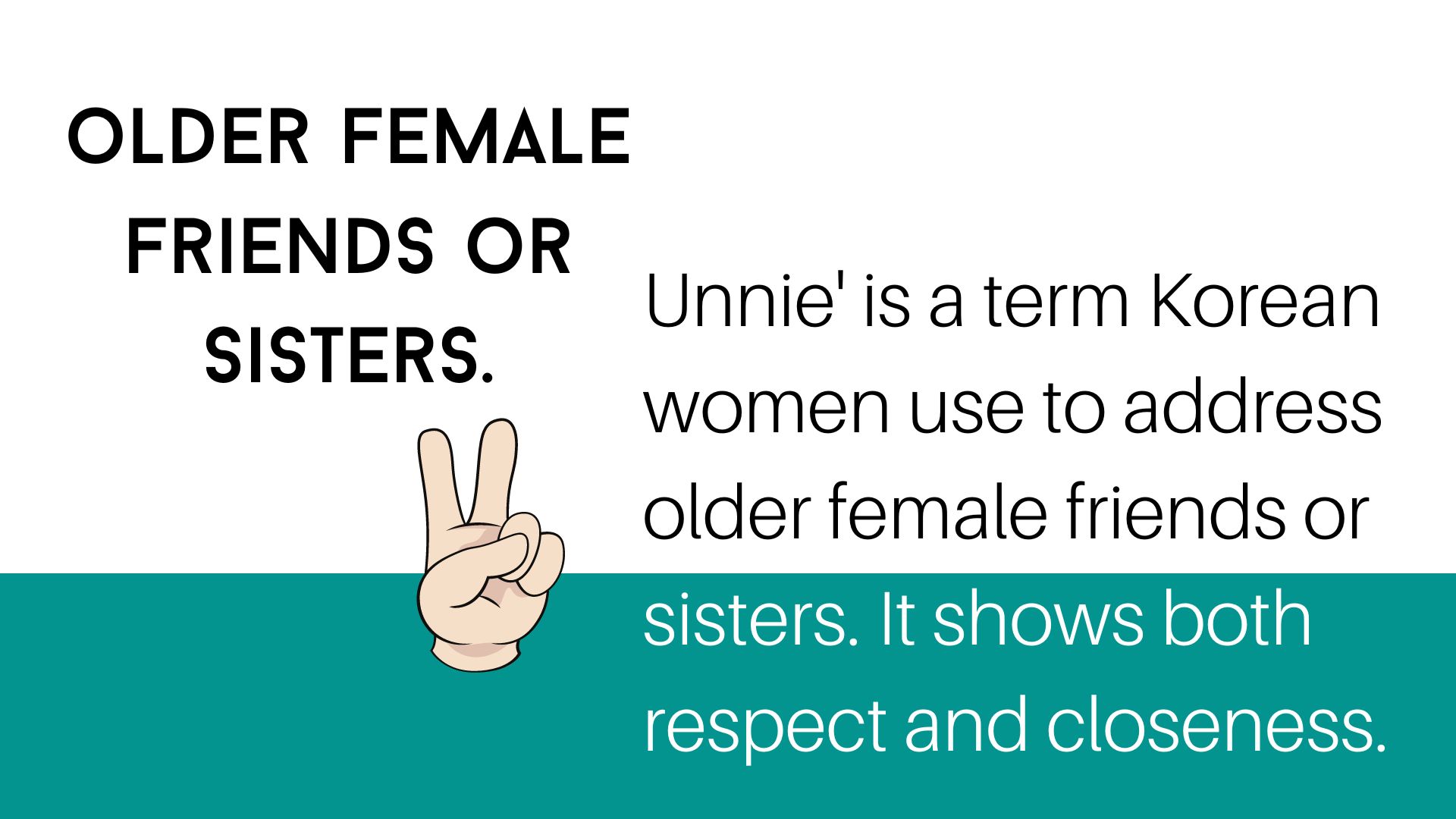
‘Unnie’ is a term Korean women use to address older female friends or sisters. It shows both respect and closeness. In Korea, this word is crucial for social interactions because it shows the importance of age and rank.
‘Unnie’ isn’t just for family; it can also refer to older female friends or work colleagues in casual settings. When a younger woman calls someone ‘unnie’, she’s recognizing that person’s experience and status but also keeping things friendly. This is key to getting Korean social rules right.
Usage Guidelines
In Korea, if a woman is talking to an older female friend or colleague, she might call her ‘unnie.’ This term is a sign of respect and closeness, not just for actual sisters but for any woman older than herself within a similar age group. It’s usually used in relaxed settings where it adds a warm, personal touch.
However, using ‘unnie’ in very formal or unfamiliar situations might be seen as inappropriate. It’s important to know when it’s okay to use it to avoid any awkwardness. Using ‘unnie’ can make the relationship feel more friendly and trusting.
| No. | Korean Usage with Unnie | English Translation |
| 1 | 언니가 항상 나를 지지해 줘서 고마워. | Thanks for always supporting me, Unnie. |
| 2 | 언니, 이 옷 어울려? | Unnie, does this outfit suit me? |
| 3 | 언니 덕분에 자신감을 얻었어. | I gained confidence thanks to Unnie. |
| 4 | 언니, 요즘 어때? | Unnie, how have you been lately? |
| 5 | 언니와 함께 시간을 보내고 싶어. | I want to spend time with Unnie. |
| 6 | 언니의 조언이 큰 도움이 됐어. | Unnie’s advice was a big help. |
| 7 | 언니, 내일 같이 쇼핑 갈래? | Unnie, want to go shopping together tomorrow? |
| 8 | 언니가 최고야! | Unnie is the best! |
| 9 | 언니 덕분에 오늘 정말 행복해. | I’m really happy today because of Unnie. |
| 10 | 언니, 고마워. 너무 고마워. | Thank you, Unnie. Really, thank you. |
Also Read: How To Say “Merry Christmas” In 30 Different Languages
Exploring “Noona”: Meaning and Usage
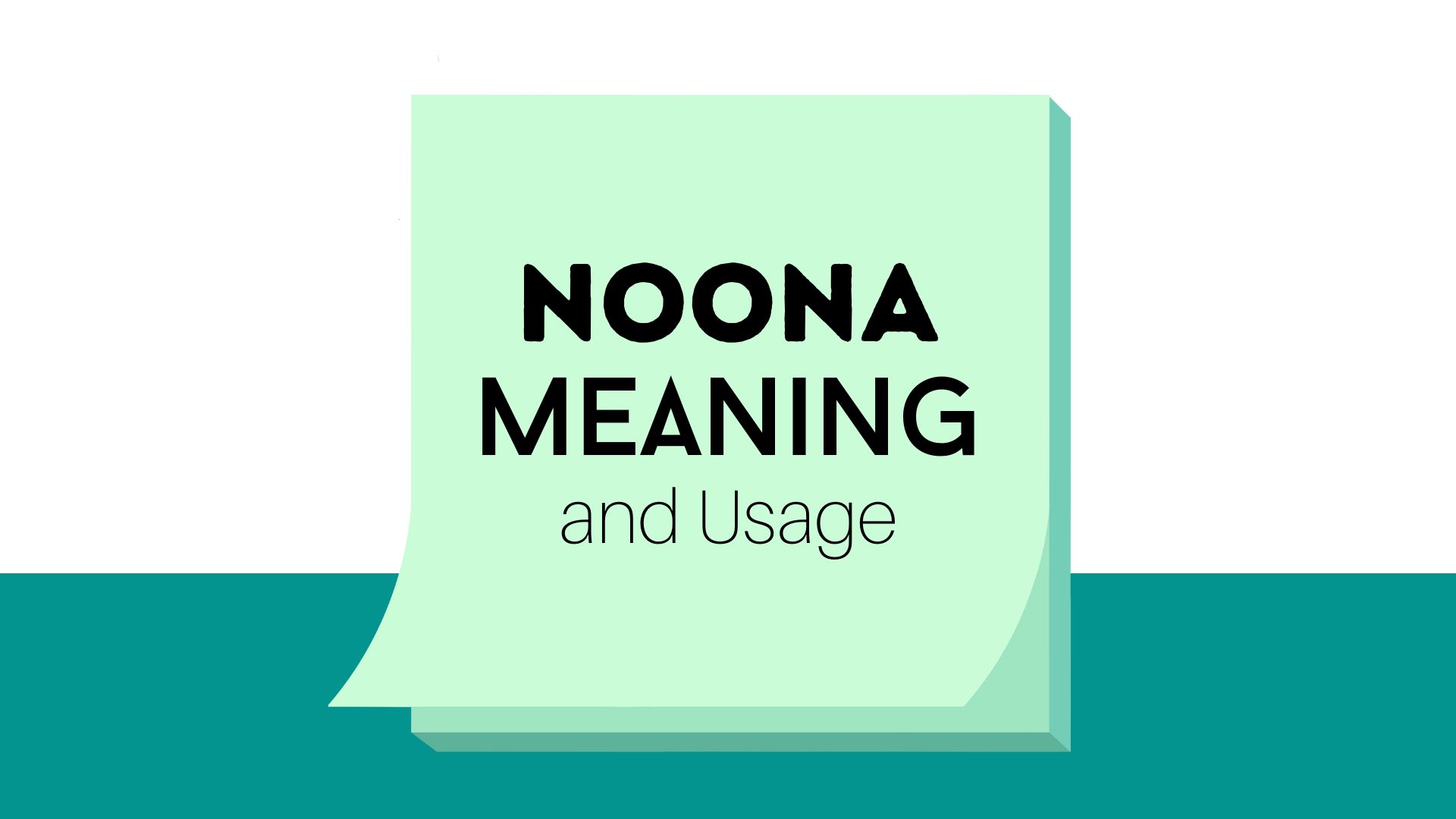
Definition and Context
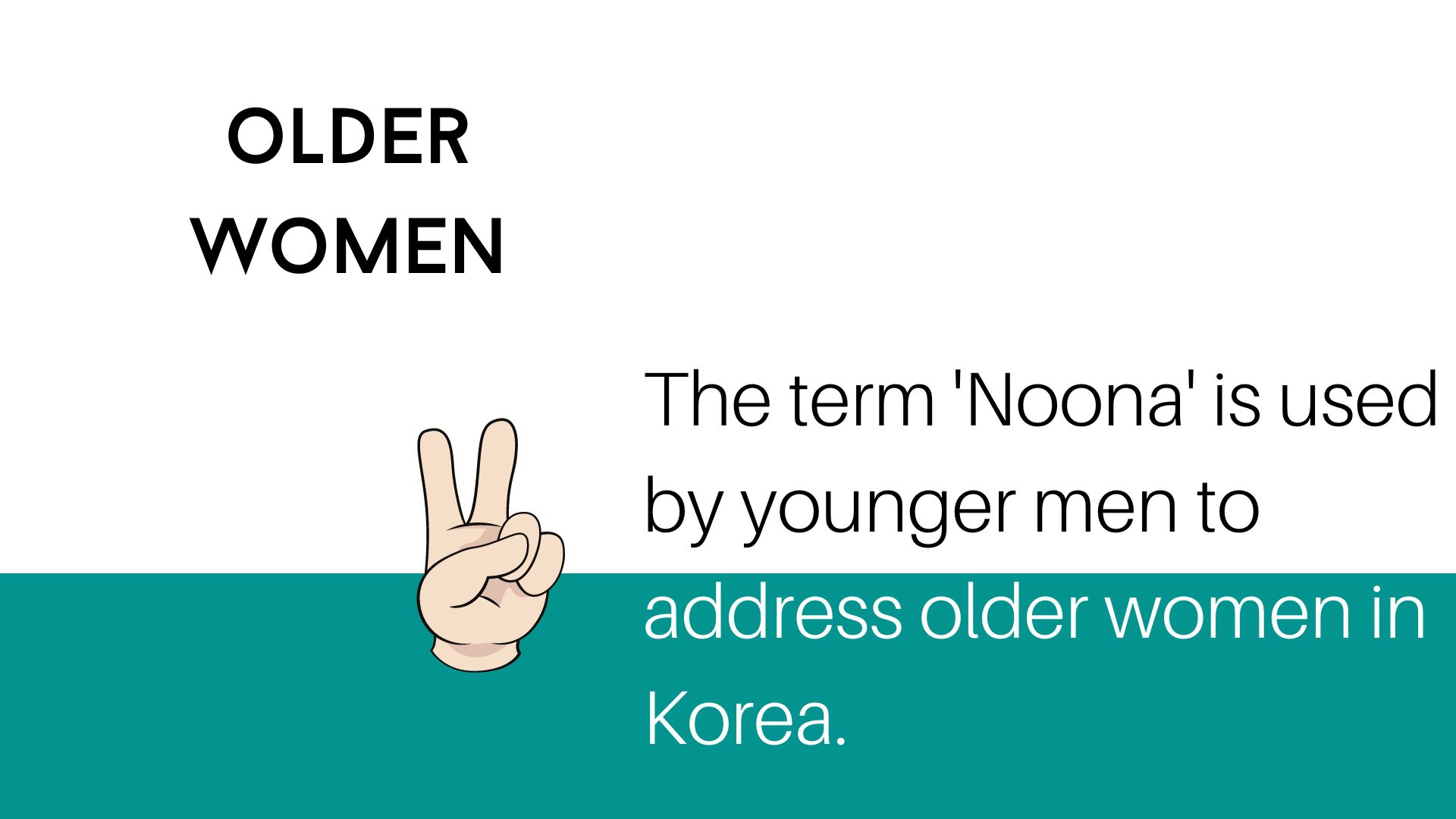
The term ‘Noona’ is used by younger men to address older women in Korea. It’s a sign of respect that also feels a bit like family. In Korea, age really matters in social situations, and using ‘Noona’ shows you understand this. It’s usually used casually among friends or people you know. It’s not just about being polite; it’s about showing you understand your place in the social order.
Usage Guidelines
Knowing when to use ‘Noona’ is key if you want to get along well in Korea. This term is for younger men to call older women. It works for family or friends, but it’s more casual, not for formal spots. You need to be sure you’re close enough to the woman to use it. If not, it might be awkward or confusing. If you’re learning Korean, listen to how people use ‘Noona’ and ask locals for tips. They can help you get it right.
| No. | Korean Usage with Noona | English Translation |
| 1 | 누나 덕분에 힘을 낼 수 있었어. | I was able to be strong thanks to Noona. |
| 2 | 누나, 이 영화 어때? | Noona, how about this movie? |
| 3 | 누나가 조언해 준 대로 했어. | I did as Noona advised me. |
| 4 | 누나, 집에 잘 도착했어요? | Noona, did you get home okay? |
| 5 | 누나랑 있으면 항상 편해. | I always feel comfortable with Noona. |
| 6 | 누나의 격려가 큰 도움이 됐어요. | Noona’s encouragement was a big help. |
| 7 | 누나, 주말에 같이 커피 마실래? | Noona, want to grab coffee this weekend? |
| 8 | 누나는 언제나 옳은 말을 해. | Noona always says the right things. |
| 9 | 누나 덕분에 오늘 정말 즐거웠어. | I had a lot of fun today thanks to Noona. |
| 10 | 누나, 내일 같이 점심 먹을래? | Noona, want to have lunch together tomorrow? |
Conclusion
So, if you’re getting into Korean culture, knowing terms like oppa, hyung, unnie, and noona is key. These words are more than just about age or gender; they shape how people relate to each other in Korea. Using them correctly shows deep respect for the culture and helps you connect better with Korean speakers. As more people worldwide get interested in Korean stuff, using these titles right can make communication smoother. Keep visiting the Translation Blog for more articles to learn more languages.

